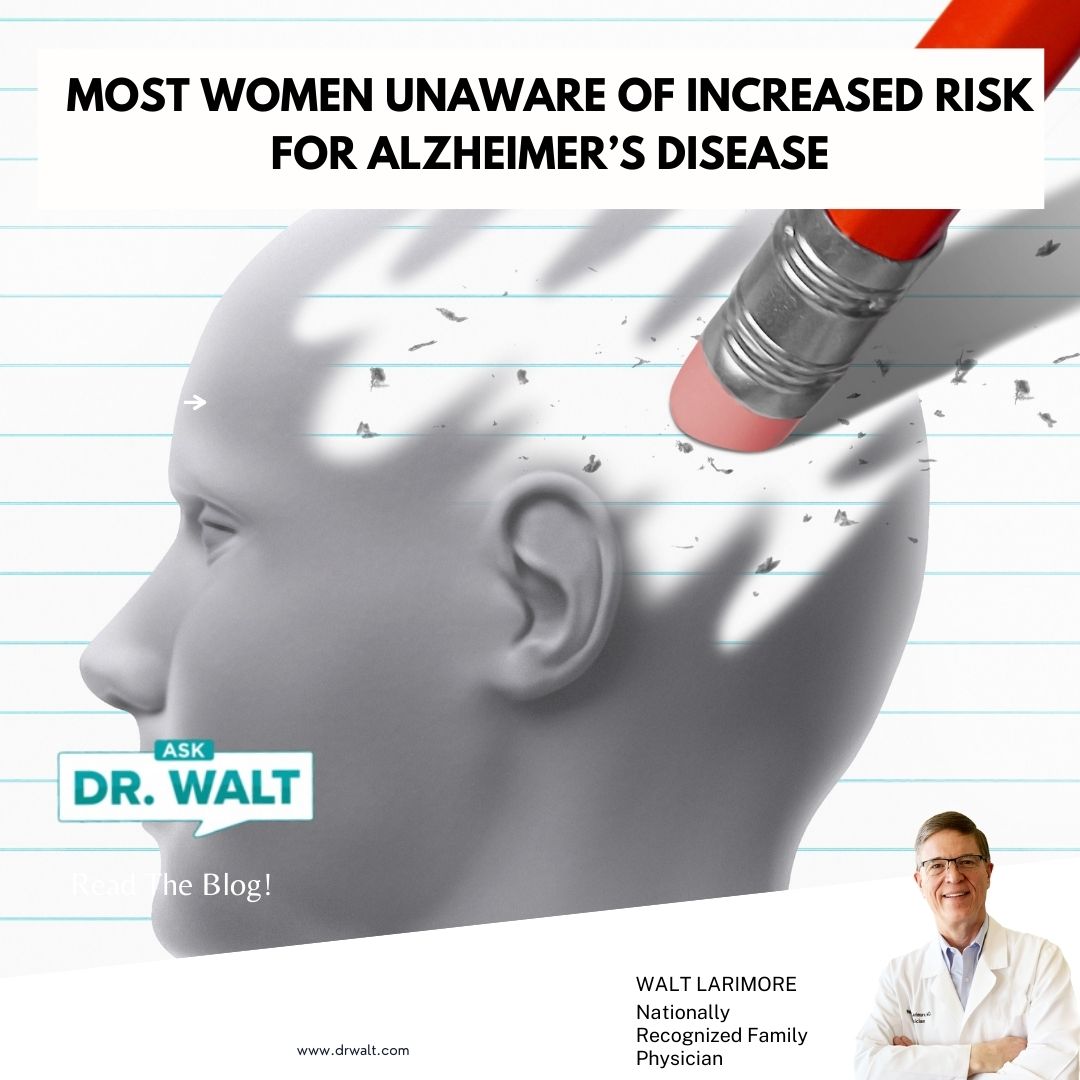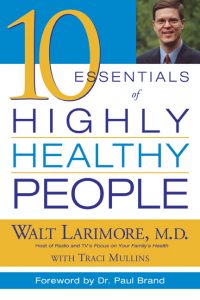
Dr. Walt’s books are all on sale at Amazon Prime Day today
July 13, 2022
Most women unaware of increased risk for Alzheimer’s disease
July 15, 2022Thursday Ask Dr. Walt – “Sitting Disease” increases risk of chronic illness and premature death
This week’s “Ask Dr. Walt” question comes from “Sofa Bound in South Carolina.” Dear Dr. Walt, my family doctor said I must start exercising. She said it will prevent illness and help me live longer and better. I’m not so sure. Thoughts?
Prevent illness? You already have an illness!
If you’re plopped on a couch or chair right now, you might have what is arguably the most common health problem in America today. It’s called “sitting disease.”
That might sound silly, but prolonged sitting — sedentary living — has been shown by researchers to play a significant role in many of the most troublesome health issues of our time, from obesity and heart disease to diabetes and depression. It’s a leading cause not only of chronic disease but premature death.
Sitting too much, according to a study from the University of Cambridge, is twice as likely to lead to premature death as being obese. Regular exercise increases longevity, reduces fatigue and disability, reduces the risk of heart failure, and improves mental health. Being physically fit reduces the risk of developing glaucoma, the leading cause of adult blindness, by nearly 50%.
Research, published in the journal JAMA Network Open, reported that the Cleveland Clinic studied more than 122,000 patients from 1991 to 2014, putting them on treadmill testing and later recording mortality rates. They reported a clear connection between exercise and longer, healthier life.
“Being unfit on an exercise stress test had a worse prognosis, as far as death, than being hypertensive, being diabetic, or being a current smoker,” Cleveland Clinic cardiologist and study author Wael Jaber told CNN.
“We’ve never seen something as pronounced as this and as objective as this.” He added that lack of exercise “should be treated as a disease that has a prescription, which is called exercise.”
Research published in Circulation that included almost 500,000 adults ages 40 to 69 linked higher fitness levels to a lower likelihood of heart disease even for people with genetic variants that dramatically increased their cardiovascular risks. The study concluded, “Even if you have a genetic risk for heart disease, there’s a simple way to combat it: Exercise!”
Among participants determined to have the highest genetic risk for cardiovascular disease, the highest level of cardiorespiratory fitness was associated with a 49% lower risk for coronary heart disease.
Americans are sitting an average of 13 hours a day. Journalist Brigid Schulte of the Washington Post cites that some medical researchers have gone so far as to say that “the office chair is worse for your health than smoking and kills more people than HIV.”
In that same article, Schulte said, “Experts say you should start standing up at work for at least two hours a day — and work your way toward four,” adding, “the average office worker sits for about 10 hours” throughout an average workday.
Other researchers found not only that standing burns more calories than sitting, but as senior author Professor Francisco Lopez-Jimenez said, “The additional muscle activity is linked to lower rates of heart attacks, strokes, and diabetes, so the benefits of standing could go beyond weight control.”
The most effective treatment for your sitting disease? Move!
You can learn more about overcoming the dangers of a sedentary lifestyle (or what some call, “Sitting Disease”) in my books, Fit over 50: Make Simple Choices for a Healthier, Happier You or 10 Essentials of Highly Healthy People.
© Copyright WLL, INC. 2022. This blog provides healthcare tips and advice that you can trust about a wide variety of general health information only and is not intended to be a substitute for professional medical advice, diagnosis, or treatment from your regular physician. If you are concerned about your health, take what you learn from this blog and meet with your personal doctor to discuss your concerns.






